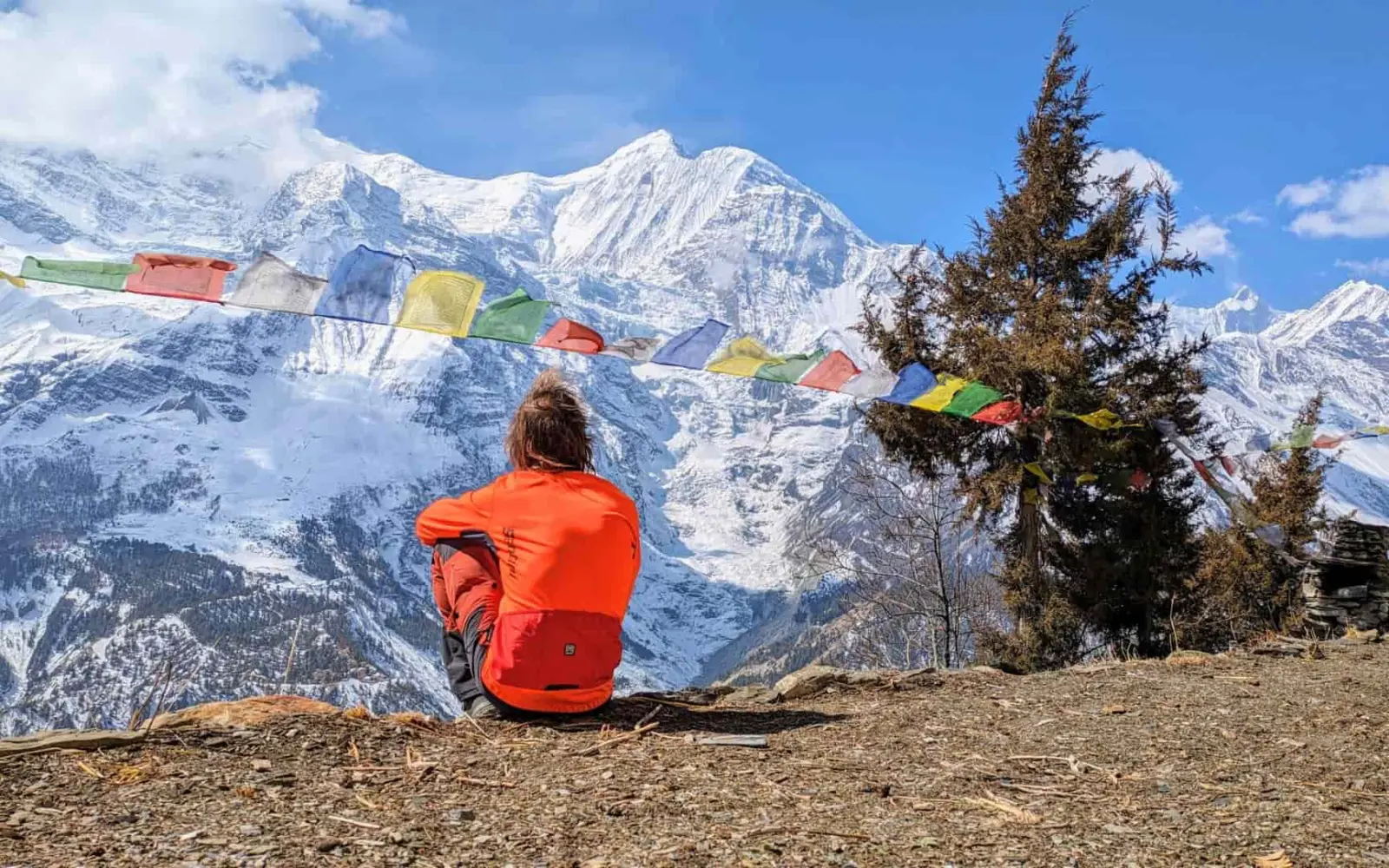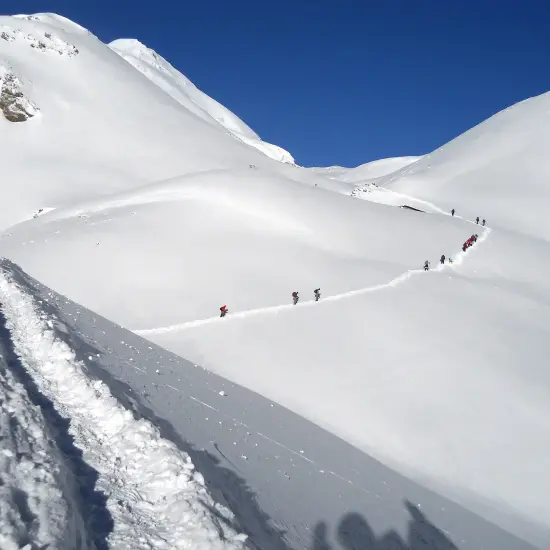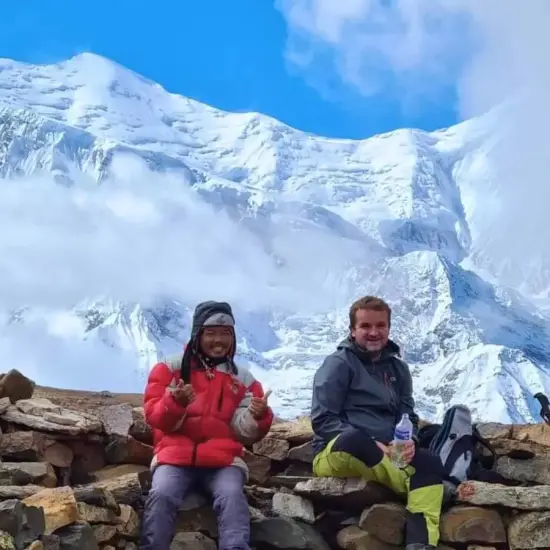Discover the Annapurna Circuit Trek with 3 route options—Standard, Tilicho Lake Add-On, and Reverse. Explore daily altitudes, culture, and acclimatization tips for a safe, scenic Himalayan adventure.
Few treks on earth rival the diversity and drama of the Annapurna Circuit Trek. It’s a Himalayan odyssey that circles the Annapurna Massif, crossing high mountain passes, subtropical valleys, Buddhist villages, and windswept deserts that resemble Tibet. Over the years, the classic trail has evolved into several route variations, the Standard Circuit, the Tilicho Lake Add-On, and the Reverse Route: each offering a unique flavor of adventure.
This guide presents all three variants in full detail, including altitudes, daily trekking hours, acclimatization tips, cultural insights, and transportation options, so you can decide which version best matches your trekking goals.
Understanding the Route Evolution
Before roads reached Manang and Mustang, trekkers used to start walking from Besisahar (760m), spending 16–20 days completing the circuit. Today, due to dusty jeep roads from Besisahar to Chame and Jomsom, most trekkers skip the early section by driving directly to Dharapani (1,860m) or Chame (2,670m) and begin their trek there.
Still, purists and culture enthusiasts sometimes choose the original trail from Besisahar, walking through Bhulbhule, Jagat, and Tal, where suspension bridges, waterfalls, and Gurung villages keep the spirit of the old trail alive. Some hidden footpaths even allow trekkers to avoid the dusty road and reconnect with ancient trails.
Trek the Annapurna Circuit Trek
A legendary high-altitude trek in Nepal that encircles the Annapurna Massif, offering dramatic scenery, diverse cultures, and the iconic crossing of Thorong La Pass at 5,416 meters.
Standard Annapurna Circuit Trek
The Standard Annapurna Circuit Trek is a 10–12 day journey, perfect for beginners. Starting at Dharapani (1,860m), it skips the dusty lower jeep tracks, ascending to the breathtaking Thorong La Pass (5,416m) before descending to Jomsom. Covering roughly 140km, this moderately challenging route balances cultural immersion, scenic splendor, and the thrill of conquering one of Earth’s highest trekking passes.
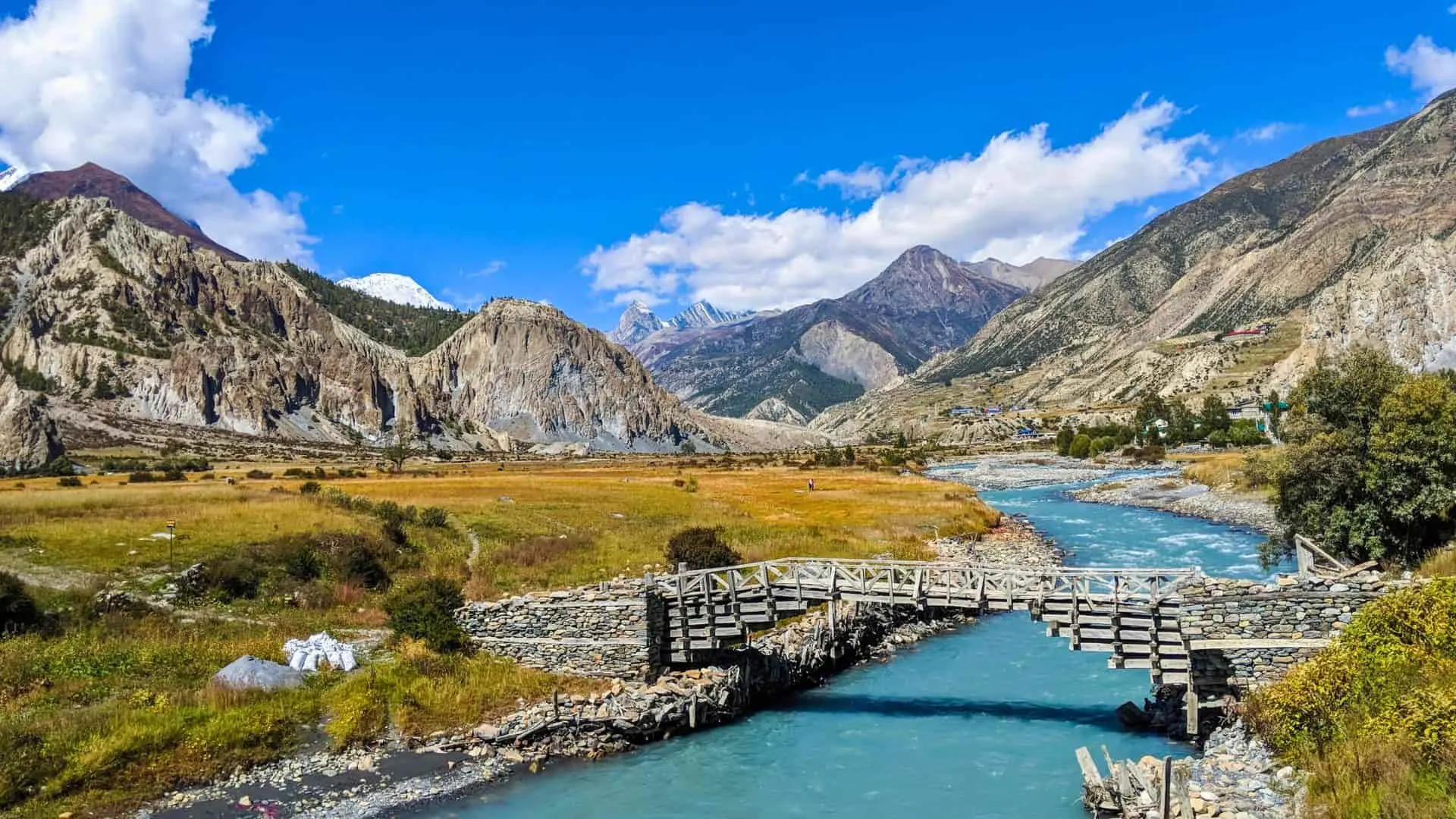
Classic Annapurna Circuit Trek Itinerary
Day 1: Kathmandu to Dharapani (1,860m / 6,102ft)
- Distance: 200km (driving)
- Elevation Gain: +460m (Kathmandu at 1350m to Dharapani)
- Duration: 8–10 hours (driving, with stops)
Your journey begins with a sunrise jeep ride from Kathmandu along the Prithvi Highway, tracing the Trishuli River’s frothy rapids and the Marsyangdi’s turquoise curves. Bypassing Besisahar (760m), the traditional trailhead, you climb through oak-shaded hills to Dharapani, a Gurung-Tibetan village pulsing with trade history. Teahouses serve steaming dal bhat as locals share tales of salt caravans crossing to Tibet. Elders whisper of cliffs glowing with spirits guiding lost traders, tying Dharapani to its ancient crossroads legacy.
Travel Hack: Private jeeps cut dust and save 3–4 days compared to trekking from Besisahar.
Day 2: Dharapani to Chame (2,670m / 8,760ft)
- Distance: 15km
- Elevation Gain: +810m
- Elevation Loss: Minimal
- Duration: 5–6 hours trekking
The trail ascends through fragrant pine and rhododendron forests, crossing waterfalls and mani stones etched with “Om Mani Padme Hum.” In Timang, apple pies surprise your taste buds before you reach Chame, Manang’s administrative hub, where hot springs soothe tired muscles under fluttering prayer flags. Lamjung Himal (7,756m) looms majestically, while Paungda Danda’s 1,500m curved cliff, dubbed the “Sleeping Beauty,” arcs dramatically overhead.
Cultural Note: Chame’s Tibetan diaspora maintains prayer wheels spun by wind and water, a tradition rooted in their Amdo ancestry.
Day 3: Chame to Pisang (3,300m / 10,826ft)
- Distance: 14km
- Elevation Gain: +630m
- Elevation Loss: Minimal
- Duration: 5–6 hours trekking
Follow the Marsyangdi River through apple orchards and pine-scented forests, with dramatic rock faces rising around you. Opt for the high trail to Upper Pisang for medieval stone houses and panoramic views of Annapurna II (7,937m). Upper Pisang’s extra 100m altitude aids lung adaptation compared to Lower Pisang. In the Evening visit Pisang Gompa’s 600-year-old murals that glow during dawn pujas, join for a meditative pause with chanting monks.
Day 4: Pisang to Manang (3,540m / 11,482ft)
- Distance: 17km (via upper route through Ghyaru and Ngawal)
- Elevation Gain: +240m
- Elevation Loss: ~100m (undulating terrain)
- Duration: 5–6 hours trekking
Choose the scenic upper route via Ghyaru and Ngawal, where stone villages perch like eagle nests amid Annapurna III (7,555m) and Gangapurna Glacier vistas. Descend into Manang, a lively hub of yak wool markets and prayer wheels. Prakha Lake’s turquoise sheen mirrors snow-capped peaks.
History Bit: Manang’s Nyeshangpa traders hid Buddhist relics during Tibet’s 1950s turmoil, now preserved in Braga Monastery’s ancient library.
Day 5: Acclimatization in Manang (3,540m / 11,482ft)
- Distance: 5–10km (optional side hikes)
- Elevation Gain/Loss: +300–1,000m (hikes), return to 3,540m
- Duration: 3–5 hours (optional hiking)
Pause to sync with the thinning air. Trek to Gangapurna Lake (3,870m) for glacial dips or Ice Lake (4,620m) to spot Himalayan tahr grazing on slopes. Evenings bring seabuckthorn juice and market strolls for Tibetan trinkets.
Day 6: Manang to Yak Kharka (4,110m / 13,484ft)
- Distance: 10km
- Elevation Gain: +570m
- Elevation Loss: Minimal
- Duration: 4–5 hours trekking
Alpine meadows unfold, dotted with yaks whose bells tinkle like wind chimes. Juniper smoke from herder camps scents the air as Chulu Far East (6,594m) sharpens into view. Scan for blue sheep or rare snow leopards at dusk, a glimpse of Himalayan biodiversity.
Day 7: Yak Kharka to Thorong Phedi (4,600m / 15,092ft) or High Camp (4,920m / 16,142ft)
- Distance: 6–8km (to Phedi or High Camp)
- Elevation Gain: +490m (to Phedi) or +810m (to High Camp)
- Elevation Loss: Minimal
- Duration: 4 hours trekking
Rocky moraines lead to Thorong Phedi’s stark teahouses, the “base camp” for Thorong La. High Camp shortens the summit day but increases AMS risk due to its 4,920m altitude.
Pro Move: Phedi’s garlic soup, a local remedy, is believed to boost oxygen uptake.
Day 8: Thorong La Pass (5,416m / 17,769ft) to Muktinath (3,800m / 12,467ft), Jeep to Jomsom (2,720m / 8,923ft)
- Distance: 15km (trekking) + 20km (jeep)
- Elevation Gain: +816m (Phedi to Thorong La) or +496m (High Camp to Thorong La)
- Elevation Loss: -1,616m (Thorong La to Muktinath)
- Duration: 7–9 hours trekking + 1.5 hours driving
Start pre-dawn for the grueling 1,000m climb to Thorong La, where cairns and prayer flags mark the world’s highest trekking pass. Sunrise bathes Dhaulagiri (8,167m) in gold. Descend 1,600m to Muktinath, a Hindu-Buddhist pilgrimage site with 108 brass spouts and an eternal gas-fed flame. Jeep 1.5 hours to Jomsom’s windswept streets.
Spiritual Note: Muktinath unites Hindus (Vishnu’s path to salvation) and Buddhists (Guru Rinpoche’s enlightenment site).
Day 9: Jomsom to Pokhara (820m / 2,690ft)
- Distance: 160km (driving)
- Elevation Loss: -1,900m
- Duration: 6–7 hours driving
Cruise through the Kali Gandaki Gorge, the world’s deepest, pausing in Marpha, Nepal’s “Apple Capital,” for homemade brandy. Pokhara’s Phewa Lake beckons with kayaks or paragliding.
Day 10: Pokhara to Kathmandu (1,400m / 4,593ft)
- Distance: 200km (driving)
- Elevation Gain: +580m
- Duration: 6–7 hours driving
A tourist bus winds past rice terraces and the Seti River, landing you in Kathmandu’s Thamel for celebratory momos and Everest beers.
Key Acclimatization Points:
- Manang (3,540m): Two nights here are non-negotiable. Side hikes to 4,000m+ train your body for Thorong La’s 5,416m. Example: Ice Lake hike (+1,080m) boosts oxygen efficiency.
- Thorong Phedi (4,600m): Sleep here instead of High Camp (4,920m) unless fit and symptom-free, as 4,920m increases AMS risk by 10–15%.
- Hydration Rule: 4–5L daily; carry a water purifier (e.g., Steripen) for safe refills.
- Safety Tip: Monitor for AMS (headaches, fatigue); descend immediately if severe. Evacuation insurance (covering 5,500m, ~$6,000 USD) is essential.
Trek the Manaslu and Annapurna Circuit with Tilicho Lake Trek
Manaslu, Annapurna & Tilicho – Nepal’s Best Trek!
Tilicho Lake Add-On (15–16 Days Total)
- Max Altitude: 4,919m (Tilicho Lake)
- Highlights: The world’s highest lake, alpine glaciers, and side trails of Manang
For trekkers searching “Tilicho Lake Trek 2025,” this extension adds 3–4 days of high-altitude magic, stretching the Standard Route to 14–16 days and ~170km. At 4,949m (updated per 2024 surveys), Tilicho Lake is Earth’s highest, a turquoise gem cradled by Tilicho Peak (7,134m). Its steep scree and thin air demand experience, but the solitude and spiritual depth make it a bucket-list detour for photographers and adventurers.
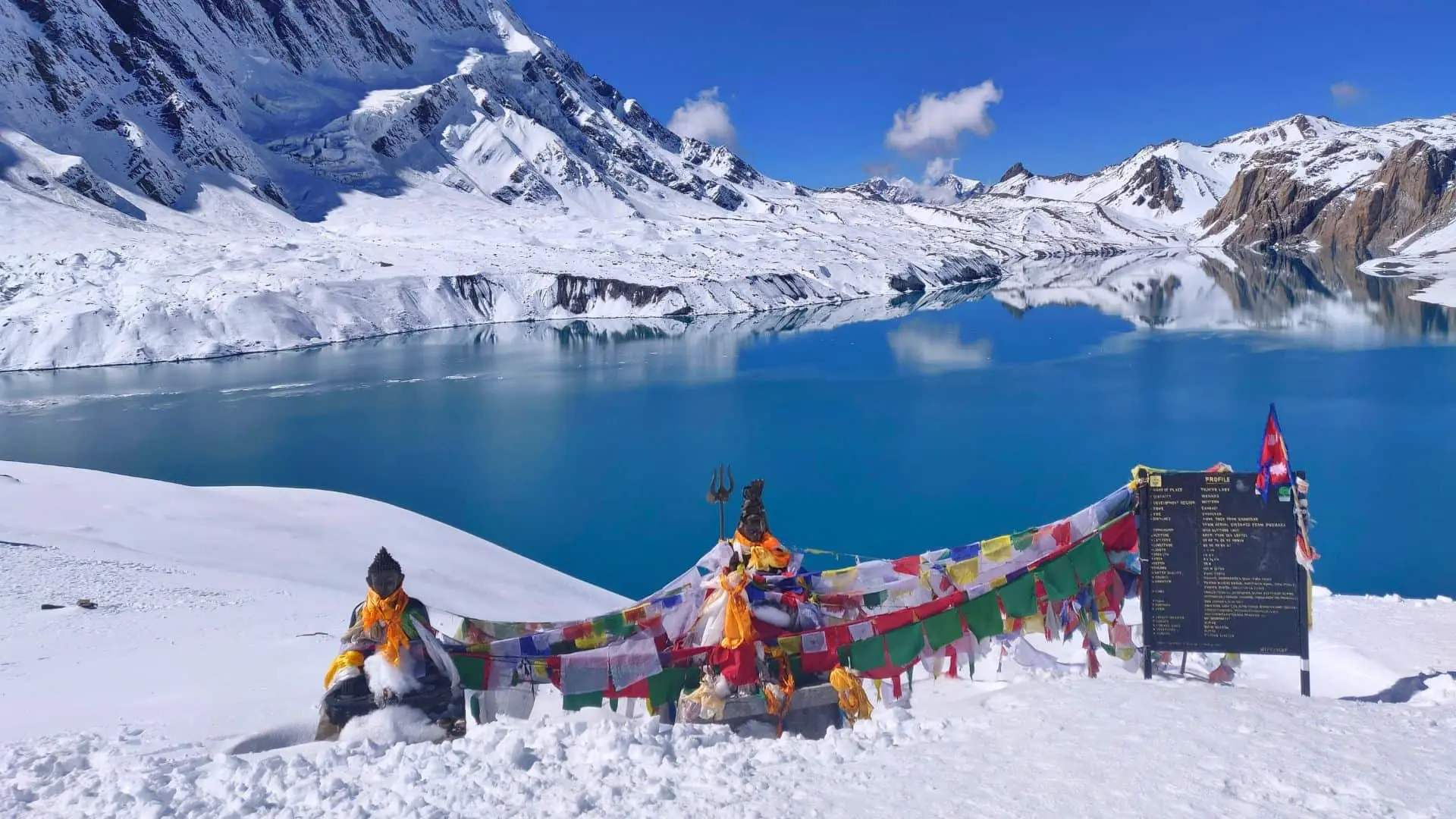
It will be the same as the Classic Annapurna Circuit Itinerary till Day 5 (Manang acclimatization):
Day 6: Manang to Khangsar to Tilicho Base Camp (4,150m / 13,615ft)
- Distance: 16km
- Elevation Gain: +610m
- Elevation Loss: Minimal
- Duration: 7–8 hours trekking
Fork west from Manang to Khangsar (3,734m), a 700-year-old stone village where prayer flags flutter over ancient chortens. Climb rugged moraine trails to Tilicho Base Camp, nestled beneath Tilicho Peak’s ice walls. Khangsar’s monastery holds relics smuggled by 15th-century Tibetan traders, tying it to the trans-Himalayan salt route.
Trail Tip: Pack microspikes for slippery scree; winds can hit 40km/h.
Day 7: Tilicho Base Camp to Tilicho Lake (4,949m / 16,237ft) to Shree Kharka (3,875m / 12,713ft)
- Distance: 12km
- Elevation Gain: +799m (to lake)
- Elevation Loss: -1,074m (to Shree Kharka)
- Duration: 7–8 hours trekking
A pre-dawn 2-hour climb reveals Tilicho’s mirror-like waters, reflecting peaks in surreal stillness. Tilicho Lake holds immense spiritual and geological significance. Ancient Hindu epics mention it as the “Sea of Silence,” where Lord Shiva’s tears formed the lake. Its surreal blue color reflects Annapurna and Tilicho Peak (7,134 m), making it a sacred and photographic highlight. Tilicho’s Ramsar wetland status protects migratory birds like bar-headed geese.
Safety Note: Acclimatize fully in Manang; 4,949m tests even seasoned trekkers.
Day 8: Shree Kharka to Yak Kharka (4,110m / 13,484ft)
- Distance: 10km
- Elevation Gain: +235m
- Elevation Loss: Minimal
- Duration: 5 hours trekking
Rejoin the main circuit amid yak bells and alpine blooms, easing into the rhythm of herder trails.
Cultural Gem: Locals offer yak butter tea, a nod to their semi-nomadic heritage.
Days 9–12/13: Yak Kharka to Jomsom, Pokhara, Kathmandu
Follow Standard Days 6–10, adding an optional Jomsom rest day (2,720m) for recovery or weather delays.
Key Acclimatization Points:
- Manang (3,540m): Two nights and a side hike (e.g., Ice Lake, 4,620m) are mandatory before Tilicho’s 4,949m, as the lake’s altitude rivals Thorong La.
- Tilicho Base Camp (4,150m): A critical stop to prep for the lake’s 799m ascent. Sleep here, not higher, to limit AMS risk.
- Tilicho Lake (4,949m): Limit time at the lake (1–2 hours) due to cold and thin air. Descending to Shree Kharka (3,875m) is crucial for recovery.
- Safety Tip: Carry a pulse oximeter; oxygen saturation below 80% signals descent. Diamox can help, but consult a doctor first.
- Weather Note: October ensures snow-free Tilicho trails; do pre-check weather forecasts.
Why Choose It? Tilicho’s remoteness, visited by only 15% of trekkers, and ethereal beauty make it ideal for solitude seekers. October ensures snow-free paths.
Trek the Tilicho Lake Trek
Discover the beauty of Tilicho Lake at 4,919m on a scenic adventure through the Annapurna region’s dramatic high-altitude trails.
Reverse Annapurna Circuit Trek (East → West)
For those searching “Reverse Annapurna Circuit Trek 2025,” this unconventional 9–11 day, ~130km journey flips the classic route, starting in Mustang’s stark, wind-carved landscapes and ending in Manang’s verdant valleys. Ideal for offbeat adventurers, seasoned hikers, and repeat trekkers, it begins in Jomsom (2,720m), ascends to Thorong La Pass (5,416m) from the east, and descends westward. This itinerary, optimized for “best Annapurna Circuit Trek 2025,” dives into Mustang’s arid drama but requires careful acclimatization due to rapid altitude gains, now centered in Muktinath. Expect quieter trails, golden dawn light on Dhaulagiri, and intimate encounters with Thakali and Gurung cultures.
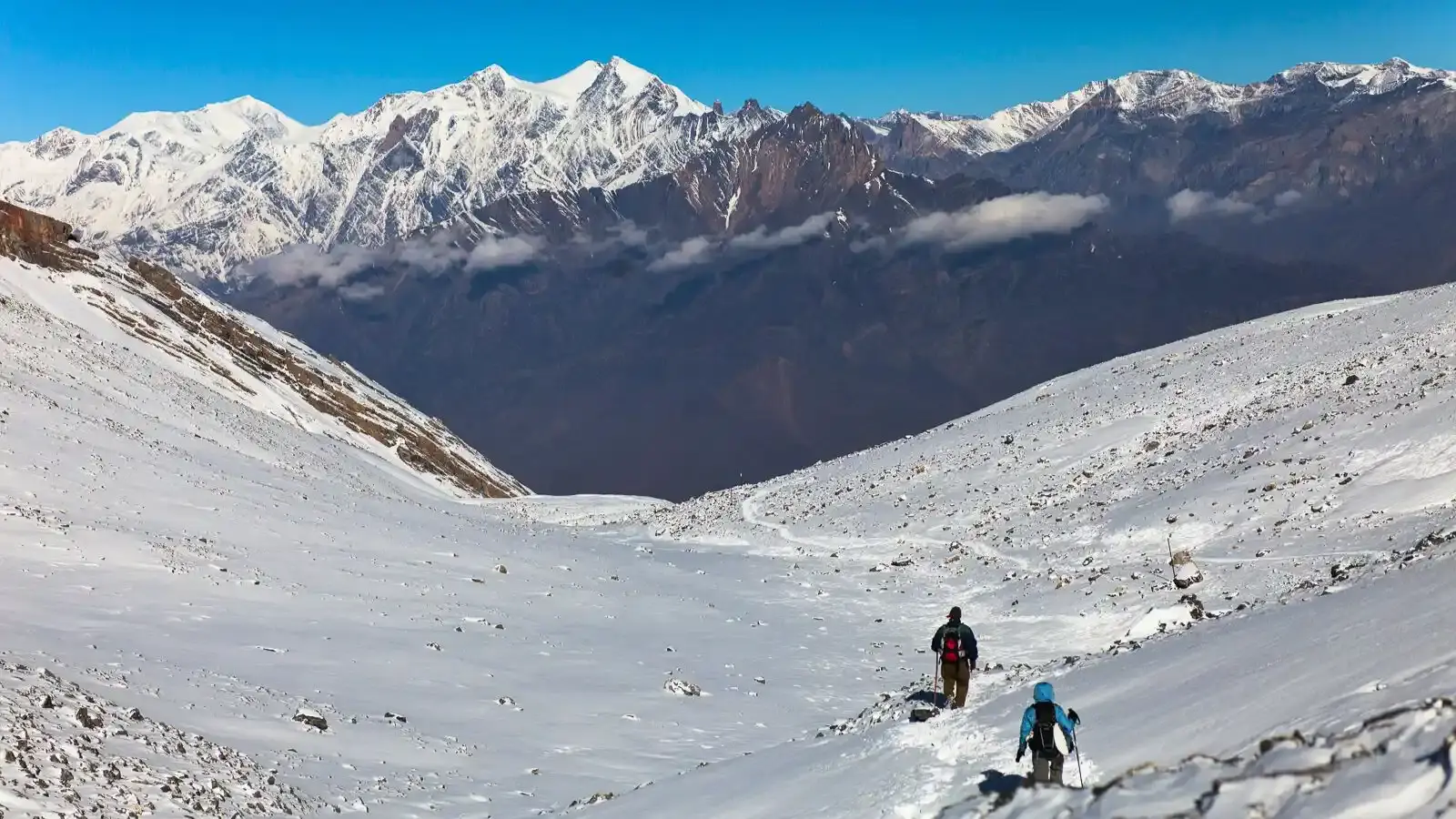
East → West Annapurna Round Itinerary
Day 1: Kathmandu to Pokhara to Jomsom (2,720m / 8,923ft) – Flight or Jeep
- Distance: 200km (Kathmandu to Pokhara, bus) + 25km (Pokhara to Jomsom, flight)
- Elevation Gain: +1,320m (Kathmandu at 1,400m to Jomsom)
- Elevation Loss: None
- Duration: 6–7 hours (bus to Pokhara) + 25 minutes (flight to Jomsom) or 8–10 hours (jeep to Jomsom)
Your Himalayan quest begins with a scenic bus from Kathmandu to Pokhara, followed by a quick flight (or dusty jeep ride) to Jomsom, Mustang’s windswept heart in the Kali Gandaki Gorge, Earth’s deepest. Cobbled streets hum with Thakali traders selling yak wool and dried apples, while the Tiri Gompa’s 12th-century murals glow at sunset.
Highlight: Nilgiri (7,061m) looms over Jomsom’s flat-roofed homes, evoking a Tibetan frontier.
Travel Tip: Book Jomsom flights early for September–November 2025 to avoid peak-season delays.
Day 2: Jomsom to Muktinath (3,800m / 12,467ft)
- Distance: 13km
- Elevation Gain: +1,080m
- Elevation Loss: Minimal
- Duration: 5–6 hours trekking
Trek through Mustang’s barren, ochre cliffs along the Kali Gandaki River, arriving at Muktinath, a sacred Hindu-Buddhist pilgrimage site. Its 108 brass spouts and eternal gas-fed flame symbolize purity, set against a stark ridge backdrop. Teahouses offer seabuckthorn tea and Thakali hospitality.
Spiritual Gem: Hindus seek moksha (liberation) here; Buddhists honor Guru Rinpoche’s legacy.
Acclimatization Note: The 1,080m gain requires hydration (4–5L/day); avoid alcohol in the dry air.
Cultural Note: Muktinath’s blend of Tibetan and Nepali traditions shines in its vibrant festival calendar, like Yartung in October.
Day 3: Acclimatization in Muktinath (3,800m / 12,467ft)
- Distance: 5–8km (optional side hikes)
- Elevation Gain/Loss: +300–600m (hikes to nearby viewpoints), return to 3,800m
- Duration: 3–4 hours (optional hiking)
Pause to adapt to the altitude before tackling Thorong La. Explore side trails to nearby viewpoints like the Jhong Monastery (4,000m) for Dhaulagiri vistas or hike toward Kagbeni (2,800m) for Kali Gandaki Valley views, returning to sleep in Muktinath. Visit the temple for rituals or sip tea with pilgrims.
Health Tip: “Climb high, sleep low” cuts AMS risk by 25% (Nepal Health Research Council, 2024). Consult a doctor about Diamox (125mg twice daily).
Highlight: Muktinath’s prayer wheels and apple orchards offer serene acclimatization moments.
Day 4: Muktinath to Thorong Phedi (4,600m / 15,092ft)
- Distance: 10km
- Elevation Gain: +800m
- Elevation Loss: Minimal
- Duration: 5 hours trekking
Ascend along the Thorong Khola, passing yak herders and wind-sculpted cliffs. Thorong Phedi, the stark “base camp” for Thorong La, sits in a moraine-strewn valley with basic teahouses. The air thins, and the landscape turns lunar.
Highlight: Blue sheep graze under Thorong Peak’s shadow.
Health Hack: Sip garlic soup, a local AMS remedy, and monitor for headaches at 4,600m.
Day 5: Thorong Phedi to Thorong La Pass (5,416m / 17,769ft) to Pisang (3,300m / 10,826ft)
- Distance: 22km
- Elevation Gain: +816m (to Thorong La)
- Elevation Loss: -2,116m (to Pisang)
- Duration: 9–10 hours trekking
Begin pre-dawn for the steep 816m climb to Thorong La, the world’s highest trekking pass. Prayer flags frame 360° views of Annapurna and Dhaulagiri (8,167m), glowing pink at sunrise. The grueling 2,116m descent to Pisang passes Manang’s yak pastures, landing in a village of stone houses and apple orchards under Annapurna II (7,937m).
Trail Tale: Locals say Thorong La’s winds carry prayers to the heavens.
Safety Note: Descend slowly to spare knees; rest in Pisang’s cozy teahouses.
Cultural Gem: Pisang Gompa’s 600-year-old murals shine during dawn rituals, join for monk chants.
Day 6: Pisang to Chame (2,670m / 8,760ft)
- Distance: 14km
- Elevation Gain: Minimal
- Elevation Loss: -630m
- Duration: 5–6 hours trekking
Trek through pine forests and apple groves, with Lamjung Himal (7,756m) towering above. Chame, Manang’s hub, welcomes you with hot springs and prayer flags. Paungda Danda’s 1,500m cliff, the “Sleeping Beauty,” curves dramatically overhead.
Cultural Note: Chame’s Tibetan diaspora spins water-powered prayer wheels, echoing Amdo traditions.
Highlight: Soak in Chame’s hot springs to ease trekking fatigue.
Day 7: Chame to Dharapani (1,860m / 6,102ft) – 6 Hours
- Distance: 15km
- Elevation Gain: Minimal
- Elevation Loss: -810m
- Duration: 6 hours trekking
Descend past thundering waterfalls and mani stones etched with “Om Mani Padme Hum.” Dharapani, a Gurung-Tibetan trade outpost, buzzes with teahouses serving dal bhat and tales of ancient salt caravans.
Trail Tale: Elders share stories of ghostly cliff lights guiding traders, tying Dharapani to Tibet-Nepal routes.
Wildlife Spot: Look for langur monkeys in the warming forest.
Day 8: Dharapani to Jagat (1,300m / 4,265ft) – 6 Hours
- Distance: 16km
- Elevation Gain: Minimal
- Elevation Loss: -560m
- Duration: 6 hours trekking
The trail dips into subtropical forests, crossing suspension bridges over the Marsyangdi River. Jagat’s stone houses and terraced fields feel frozen in time, with Gurung locals offering millet rakshi.
Highlight: Waterfall crossings and warm hospitality invigorate the day.
Pro Tip: Enjoy Jagat’s teahouse dinners for a cultural toast to the trek.
Day 9: Jagat to Besisahar (760m / 2,493ft) to Kathmandu (1,400m / 4,593ft) – 6–7 Hours
- Distance: 15km (trekking) + 200km (bus to Kathmandu)
- Elevation Gain: +640m (Besisahar to Kathmandu)
- Elevation Loss: -540m (Jagat to Besisahar)
- Duration: 3–4 hours trekking + 6–7 hours bus
Trek through lush valleys to Besisahar, then board a tourist bus to Kathmandu. Celebrate in Thamel with Newari cuisine—think spicy choila and momos—under twinkling lights.
Celebration Note: Reflect on Thorong La’s triumph over a cold Gorkha Strong beer.
Key Acclimatization Points:
- Muktinath (3,800m): A full rest day with side hikes (e.g., Jhong Monastery, +200m) is essential to prep for Thorong Phedi’s 4,600m and Thorong La’s 5,416m. This replaces Manang’s rest day, addressing the route’s rapid 2,696m gain.
- Thorong Phedi (4,600m): Sleep here, not High Camp (4,920m), to minimize AMS risk. Monitor oxygen saturation and symptoms like fatigue.
- Safety Tip: The Reverse Route’s fast ascent increases AMS risk by 15% compared to the Standard Route. Descend immediately if symptoms worsen. Evacuation insurance (e.g., Global Rescue, $6,000+) is critical.
- Hydration Rule: 5L/day in Mustang’s dry air; carry a water purifier for safe refills.
Why Choose the Reverse Route?
- Unique Vistas: Dawn light bathes Dhaulagiri (8,167m) and Annapurna in gold from Mustang’s side, perfect for “Annapurna Circuit photography 2025.”
- Quieter Trails: Fewer trekkers mean deeper chats with Thakali locals sharing Mustang Kingdom tales from the 1950s.
- Time-Efficient: Ideal for time-crunched trekkers, especially with Jomsom flights cutting travel time.
- Challenge: The rapid 2,696m gain from Jomsom to Thorong La in 4 days demands fitness and AMS vigilance. Use pulse oximeters and monitor for headaches or dizziness.
Trek the Annapurna Circuit Trek
A legendary high-altitude trek in Nepal that encircles the Annapurna Massif, offering dramatic scenery, diverse cultures, and the iconic crossing of Thorong La Pass at 5,416 meters.
General Acclimatization and Safety Tips for All Routes
- Hydration: Drink 4–5L daily; avoid alcohol and caffeine above 3,000m to prevent dehydration.
- Med Kit: Carry Diamox, ibuprofen, and a pulse oximeter. Oxygen saturation below 85% at 4,000m+ warrants caution.
- Side Hikes: Boost acclimatization by 20–30% (e.g., Ice Lake in Standard/Tilicho, Jhong in Reverse).
- Weather Prep: Thorong La can see sudden snows; check Windy app for 2025 forecasts. October–November is snow-free.
- Insurance: Mandatory for 5,500m evacuation coverage. Recent data from Nepal Tourism Board (2024-2025) shows 2–3% of trekkers require high-altitude rescues.
- Guides: Local guides monitor AMS and share altitude wisdom, enhancing safety.
Cultural & Historical Insights of the Circuit
The Annapurna region weaves together centuries of migration, religion, and trade.
- Gurung Villages (Bhulbhule–Chame): Known for bravery in the British Gurkha army, these villages preserve shamanic and Buddhist rituals.
- Manang Valley: Medieval Braga Monastery, yak caravans, and was settled by traders from Tibet’s Nyeshang region, who exchanged salt and wool with Mustang and Pokhara.
- Thorong La Pass: Historical trade route connecting Manang with Mustang.
- Tilicho Lake: Mentioned in the Hindu epic Ramayana as the ancient Kak Bhusundi Lake.
- Muktinath: A sacred site of spiritual liberation where Hindu and Buddhist pilgrims worship side-by-side and is home to 108 water spouts and an eternal flame.
- Mustang Influence: Beyond Muktinath, the architecture shifts to flat-roofed, ochre-colored houses resembling the high plateaus of Tibet.
- Jomsom: Ancient salt trade hub; gateway to Upper Mustang.
Every village tells a story, from Braga’s cliff monastery to Marpha’s apple brandy traditions, the Annapurna Circuit remains a living museum of Himalayan civilization.
Trek the Annapurna Circuit Mountain Biking
Pedal Through Paradise: The Annapurna Circuit Mountain Biking Expedition
Which Route is Best for You?
| Route Variant | Duration | Difficulty | Best For |
| Standard Circuit (10 Days) | Moderate to Challenging | Balanced adventure seekers | Classic route, culture, and Thorong La crossing |
| Tilicho Lake Add-On (14–15 Days) | Challenging | Experienced trekkers, photographers | World’s highest lake, remote beauty |
| Reverse Circuit (Jomsom → Manang) | Moderate | Time-limited or returning trekkers | Mustang landscape, shorter itinerary |
| Full Classic (Besisahar Start, 18–20 Days) | Strenuous | Cultural enthusiasts, purists | Ancient foot trails, traditional villages |
Trek Preparation Tips
- Training: 3–4 weeks of cardio & uphill hikes before trek.
- Gear: -10°C sleeping bag, trekking boots, poles, down jacket, water purifier.
- Insurance: Must cover high-altitude evacuation (above 5,000 m).
- Guides & Porters: Hiring local guides ensures safety, language help, and cultural connection.
The Annapurna Circuit, whether you take the Standard, Tilicho Lake, or Reverse Route, remains one of the most rewarding treks on Earth. With its fusion of Himalayan wilderness, Buddhist culture, and epic landscapes, every step is a story in motion.
Whichever you choose, one truth remains: the trail will change you forever.

